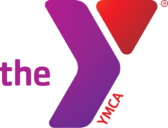KANSAS STATE ALLIANCE OF YMCAs
(816) 679-8251


KANSAS STATE ALLIANCE OF YMCAs
About
Advocacy
ADVOCATE
FOR OUR
CAUSE
made by webdebsites






YMCA
National
Advocacy
Days
Advo
c
acy
Ag
enda
2
0
2
5
YMCA
of
the
USA

SUPPORTI
NG WO
RKI
NG FAMILIE
S
T
HROUG
H C
H
ILD
C
A
RE
Support the highest level
of funding
possibl
e
for the Child Care
and
Development Block
Grant (CC
DBG).
CCD
B
G helps families with low incomes
access
affordable, qualit
y chi
ld care.
These fund
s
enable families to secure
e
arly chi
ldhood and
aftersch
ool
opportuni
ties for childr
en under the
age of 13, so that paren
ts can wo
rk or
p
ursue
education or training
o
ppor
tunit
ies. Hu
ndreds
of
Ys across
the country offeri
ng quali
ty child care
programs participate in their state
’s
child care
subsid
y program, helping
parents offset the cost
of child care,
which is ofte
n the lar
gest fami
ly
expenditur
e.
Support a $750 million increase for
21st
Century Community
Learning
Centers
(21st CCLC).
These funds support l
ocally designed
academic
enrichment opportunities
befo
re sch
ool,
after school and duri
ng
the summer. These
programs help
inspi
re k
ids to learn and make
better
decisi
ons and to give wor
king par
ents
peace of mind k
nowing their children
are in safe
environments. Research
shows that quali
ty
programs give
studen
ts
the academic,
social and
career skills they need to suc
ceed; can
lead to
improvements in attendance
,
cl
ass part
icip
at
ion
and behavior, and
homewo
rk completi
on; and
can nar
row
the achievement gap. One in five Y
afterschool programs are support
ed by
21st
CCLC
funding, in partnership with
schools and di
str
icts.
Support the highest level
of funding
possibl
e
for H
ead Start.
Head Start prepares young chi
ldren
f
or school
and life by provid
ing a
compr
ehensi
ve set
of services to
fami
lies, in
cluding education,
nutrition, heal
th care and s
ocial
ser
vices
to enhance child well
-being.
Head Start
also supports parents’
engagement in thei
r
child’s learning
and development. Toget
her,
compr
ehensive services and paren
tal
engagement ensur
e the cogni
tive
,
social and
emotional development of
young children an
d
prepar
e them f
or
fut
ure success. Ther
e are 185
YMCA
Head St
ar
t/Early He
ad Start progr
am
sit
es
in 22 states.
Cosponsor the Summer Mea
ls Act.
The Summer Meals Act fixes longst
andin
g
challenges to child nu
tri
tion pr
ograms by
streamlining operations to support year-
r
oun
d
feeding, expanding eligibil
ity to serve
more kid
s,
allowin
g an a
ddit
ional meal or
snack to be served
during the summer and
pr
ovidi
ng transport
ation
services forhard-
to-reach
areas. In 2022,
YMCAs served
nearly 44 million meals and snack
s
through
USDA child nutrit
ion progr
ams at 6,00
0
sites across th
e coun
try.
Support the highest level
of funding
possibl
e
to the Department of
Housing a
nd Urban
Development
grant programs that s
upport
emergency, transitional and
a
ff
ordable
housing.
These grants should also remain fle
xible to
support
facility infrastructure, staff training,
and social services to address soci
al an
d
healt
h
inequities experienced by this
popul
at
ion.
Additional funding f
or
homeless ser
vices wi
ll help
house
vulnerable populations and enable Ys and
other community organizations to expand
th
eir
services and respond to gr
owing h
ousin
g
needs.
Ys house nearly 15,0
00 reside
nts,
and Ys across
the country provide
numerous s
upports and
services for
individuals at risk of or experienci
ng
homelessness.
Support a Farm Bill that helps Ys feed
th
e
whole family and se
rve ru
r
al
communities.
The F
arm Bill should include:
The Investing in Rural America Act
(H.R. 4736)
,
whic
h establishe
s a loa
n
progra
m fo
r chil
d car
e
an
d health care
facility construction in rura
l
communities
,
The Fresh P
r
oduce Procurement
Reform
Act (H.R. 5589 / S.2874)
,
which would let
community-base
d
nonprofits provid
e fres
h
produce to
local families, a
nd
Th
e highest possible funding for
Gu
s
Sc
hu
m
acher Nutrition
Incentive Program
(GusN
IP) and
SNAP-Education programs,
whic
h Ys
are usin
g to help familie
s make
healthy
diet decision
s an
d ge
t th
e
nutrition the
y need.



Support the highest level
of funding
possibl
e
for the Fu
ll-Service
Community Schoo
ls
program.
The community schools model pro
motes
school-community partnerships and
str
at
egies
that coordinate and integr
at
e
local services—
including health
, nut
ri
tion and s
ocial
services—to
enhance children
’s academic
and non-academic
outcomes and to
support family wellness. G
rant
programs
including 21st
Century Com
muni
ty
Learning
Center
s, as well as fundin
g under Title
I of
ESSA can be used to support this model. Ys
are partners in hundreds of com
muni
ty
school
efforts across th
e coun
try, ei
ther as
a school
partner and service provider or as
the lead agen
cy
responsible for the
co
ordi
nation, planni
ng and
implementation
of communi
ty sch
ool ini
tiati
ves.
ADDRESSING COMMUNITY
NEEDS
Support the highest level
of funding
possibl
e
for the Centers for Disease
Control and
Prevention’
s (C
D
C)
National Center for Chronic
Disease
Prevention and Health Promotion to
address the looming crisis
of c
hronic
disease.
CDC invests in proven strateg
ies that
add
ress t
he
nation
’s leading causes of death
and disability
:
heart disease, cancer, obesity,
stroke, arthritis
and diabetes. Incr
eased
funding is essenti
al to
address skyrocketi
ng
chronic condit
ions and
to stem the growi
ng
pandem
ic of sedentary
behavior and poor
nutri
tion t
hat r
esult in disease
and disabi
lit
y.
Many of these chronic condit
ions
are more
common, diagn
osed later, an
d result in
health inequities for people of co
lor, older
adul
ts,
those living with di
sabi
lit
ies, people
wi
th mental
and substance use disorders,
and t
hose wit
h
low incomes and lower
educational att
ai
nment.
Y-U
SA has
regranted CDC funding to local Ys
to build
capacity and deliver evidence
-based
programs and policy strate
gies that prevent
an
d
control chronic diseases an
d stem
i
nequi
ties. We
as
k that Con
gress:
Support $4
0 million in funding for
CDC’s
National Diabete
s Prevention
Program
.
Th
e
National Diabetes
Preventio
n Program is shown
to
prevent the incidence of type 2 diabete
s
by 58% for some of th
e 98 million
America
n adult
s living
with
prediabetes.
Support the highest level of funding
possible
for CDC’s Heart Diseas
e and
Stroke Division.
Thes
e resource
s help
to suppor
t scalin
g of th
e
YMCA Blood
Pressure Self-Monitoring Program
,
which helps some of the 116 million
American
s
living with hypertension
preven
t hear
t diseas
e
and stro
k
e
s by
controlling their condition.
Support the highest level of funding
possible
fo
r CDC’s Comprehensive
Cance
r Program to
create a national
cancer surviv
orship program
and
scale evidence
-based physical activity
and
well-being programs, lik
e
LIVESTRONG at the
YMCA
, an
d help
some of th
e 17 million American
s
living
with, through a
n
d beyond cancer.
Support
$54 million for CDC’s
Arthritis
Program to suppor
t funding
in all 50 states.
Y programs lik
e
Enhance®Fitness help some of the
59
million American
s living with arthritis
reduc
e
pain
,
increas
e flexibility, an
d
improv
e quality of
life.




Support
$130 million for CDC’s Division
of
Nutrition, Ph
y
sical Activity and
Obesity
(DNPAO)
to support
community-driven
approaches to
advance w
alking and b
iking in
communitie
s and to increas
e access to
healthy,
affordable food
s in orde
r to
preven
t an
d control
overweig
ht an
d
obesity. Pleas
e also suppor
t
funding for
family-base
d lifestyle health
program
s
for childre
n living with obesity. Thi
s
align
s with th
e White House Nationa
l
Strateg
y on
Hunger
, Nutrition an
d
Health.
Support $
1
0
2.
5
million for CDC’s
R
EACH
and GHWI
C programs.
The
Racial and Ethnic
Approaches to
Community Health (REA
C
H)
program
helps reduce racial and e
t
hn
i
c health
disparities, a
nd the Good Health and
Wellness
in Indian Countr
y (GHWIC)
progra
m makes
significan
t investment
s
to improve America
n
Indian an
d Alas
ka
Nativ
e tribal health.
Support the Prevent Dia
betes A
ct
and
administrative rule changes to
impro
ve the
Medicar
e Dia
betes
Pre
vention Progr
am
(MDP
P).
Substanti
al p
rogress wa
s made in 2023
through
rule changes to impro
ve MDPP, both
in terms of
increased payments
to supplier
s
for the pr
ogram
and expanded coverage for
screening s
ervices
to better identify an
d
refer th
ose l
iving wi
th
prediabetes to the
program. The Prevent D
iabetes
Act will
expand t
he number of supplier
s able to
deliver the program and to end the “once
-in-
a-lifetime” limit on individuals’ part
icip
at
ion
in t
he
program. Additional rule changes are
n
eeded
to better support low
-income and/or
under-resourced individuals in the pr
ogram,
and to
alleviate some of the pr
ohibit
ive red
tape involved
in becoming a Medicare
suppl
ier.
Cosponsor the
Treat and Reduce
Obesity Act
(TR
OA) (H.R. 4818 /
S.2407).
TROA will enhance Medicare beneficiar
ies’
access to health car
e providers best suit
ed
to
provide intensive behavior
al t
herapy,
i
ncludin
g
community-based organizatio
ns
li
ke Ys, an
d
allow Medicare Part D to cover
FD
A-approved
anti-obesit
y medications.


Cosponsor the Comprehensive Cancer
Survivorship Program Act (H.R. 43
63 /
S.2213).
This le
gislation wi
ll addr
ess the gaps in
survivorship car
e and develop stan
dards to
improve the overall patient-cen
ter
ed qualit
y
of
care and navigation needs of cancer
survivors
and t
heir famil
ies. Addi
tionally
, it
would support
funding for cancer
survi
vorship pro
grams li
ke the
LIVESTRONG
at the YMCA pr
og
ram.
Cosponsor the Community Mental
Wellness
and Resilience Act (H.R. 30
7
3
/ S.1
452).
This legislation pr
omotes ment
al
wellness and
resilience and supports
st
rategies to pr
event
and heal men
tal
healt
h, behavioral he
alth
, and
psychosocial conditions through
devel
opmen
tally
and culturally
appropr
iate communit
y progr
ams.
Additio
nally, it would award communit
y-
based organizations grants for th
e
purpose
of establishing, operati
ng, or
expandin
g
community-based mental
wellness and r
esilien
ce
programs.
Cosponsor the CA
RI
NG about Social
Determinants of Health Act
(H.R.1066
).
This bill requi
res th
e Center
s for Medicare &
Medicaid Services (CMS) to peri
odically
upd
ate
specified guidance to help states
addr
ess so
ci
al
determinants of health (e.g.,
so
cioe
conomic
factors) under Medicaid and
the Children
’s Health
Insurance Program
(CHIP).
IMP
ROVI
NG
THE
NATI
O
N’S
HEALT
H
Support $5 million for Drowning
Prevention
at CDC’s National Center
on Injury Pre
ve
ntion
and Control.
These funds would support nation
al
organizations in scaling proven
prevent
ion
programs, stat
e and lo
cal
drowni
ng surveill
ance
and
implementation of n
at
ional and st
at
e
plans
on water safety. Mor
e children
a
ges 1-4 die fr
om
drowning than any
othe
r cause of de
at
h, an
d
it is the
second leading cause of
u
ni
nten
tio
nal
injury for children ages
5-14. Thi
s healt
h cr
isi
s
disproportionat
ely impac
ts childr
en
of color.
Support the highest level
of funding
possibl
e
for CDC’s National Center on
Inju
ry Pre
vention
and Control for
community vi
o
lence
prevention and
fi
rearm injury and mortality
preve
ntion re
search.
The Y has j
oined the American
Academy of
Pediatrics in supporting
increa
sed research on
evidence
-
based strategies to reduce gun-
related
injuries. As an organization
committed to youth
and youth
safety, the Y advances com
mu
ni
ty-
based violence prevention strate
gies,
which can
help reduce both youth
violence vic
timizatio
n and
perpetratio
n.
Cosponsor the RIS
E
from
Trauma Act
(H.R.
4541 / S.1426).
The RISE from Trauma Act will
expand tr
auma-informed training
and work
force development
in social
service organizations, schools, healt
h
care settings, child welfare and
justice syst
ems
and among fir
st
respo
nders. It wil
l also incr
ease
resources to bolster community
r
esponse to
those affected by
trauma. Ys across
the cou
nt
ry
provide services and supports,
includin
g trauma-informed
approaches to care, in collaboration
with local partners and agencies to
mi
tigat
e
the effects of trauma an
d
adver
se childh
ood
experiences
(ACEs) and pr
omote mental he
alth
and wellness.
Support the highest level
of funding
possibl
e
for
Titles I and II of the Child
Abuse Prevention
and
Treatment Act
(CAPT
A).
CAPTA is dedicated to t
he
prevent
ion,
assessment,
identification and tre
at
men
t of child
abuse and neglect and supports a
con
tin
uum of
services to prevent
child maltreatmen
t, reduce
entry
into the child welfare system
an
d
in
tervene
when children are
maltr
eated. Title II of CAPTA,
Community-Based Child Abuse
Prevent
ion
(CBCAP) grants, support
community-based
family-
strengthening services thr
ou
gh
robust
public-private partnerships.
These services aim
to enhance the
overall well-
bei
ng and outcomes
of
children and families and include
volun
tary
evidence
-based home
visiting, parental skills-building, and
self-help programs; and support
coordination and connect
ion wit
h
men
tal heal
th
,
substance use, and
domestic violence serv
ices.
Suppo
rtin
g family stabi
lit
y is cor
e to
the Y’s
mission, and chi
ld prote
ctio
n
is a top pr
ior
ity.
KEEPI
NG KIDS
SAFE
Cosponsor the Youth Workforce
Readiness Act (H.R. 3416 / S.454).
This legislation seeks to create federal
investments
and partnerships that
will increase opportunitie
s
for youth
to build
kn
o
wledge and skills an
d
connect to critical real
-life work
experiences and
learning
opportunities. The bill also re-
establishe
s
Youth Councils to work in
coordination with loca
l
wor
kforce
boards to elevate youth voice on
critical
issues. Through an array of
youth wor
kforce
readiness programs,
the Y provides young peopl
e
with
real
-life work experiences and
learning
opportunities that build
kn
o
wledge and skills an
d
connect
them to personal gro
wth and social
an
d
economic opportunity
.
Support $130 million for the Youth
Mentoring
Program at the
Departmen
t of Justi
ce.
The Office of Juvenile Justice and
Delinquency
Prevention (OJJDP)’s
Youth Mentor
ing Pr
ogram
provides
grants to yout
h-serving or
ganizations
to fund quality mentoring pr
ograms,
grounded in
evidence
-based
research, to improve outcom
es
for
at-risk an
d high-
ri
sk you
th
.
Mentori
ng is
a critical component in young
people
’s lives,
helping them make the
deci
sions
and connectio
ns
that lead
to opportu
ni
ty. Each ye
ar, Ys provide
positive life experiences to hundr
ed
s
of youth
participating in t
he Y’s Reach
& Rise® ther
apeutic
mentoring
program, funded t
hrough DOJ’s Youth
Mentorin
g Program.
Cosponsor the PLAYS
in Youth Sports
Act
(H.R. 4599).
This legislation au
thor
izes grants to
suppo
rt
youth sports activities
inc
lu
ding pro
mot
ion,
training an
d
certif
icat
ion for coaches, eff
orts
to increase participation in youth
s
po
rts,
and ac
tivit
ies to
promote
safety and h
ealt
h,
including child
abuse preventio
n. The bill
calls on the Department of
Healt
h
an
d Human
Services to establish a
$75 m
ill
ion annual gr
ant
program to
support n
onprofit or
ganizations
workin
g to i
mprove heal
th throug
h
you
th sports
participatio
n.
Support $100 million for National
Park
Service Youth Partnership
Programs at the
Departmen
t of
Interior.
These resources have enabled
partnerships
between national park
s
and Ys to create youth
employment
programs and have engaged over
100,000 youth in the outd
oo
rs,
providi
ng many
with their first
vi
sit to
a natio
nal park. Incr
eased
funding
would enable more Ys and yout
h
-
serving
organizations to deliver t
he
program.
Support $23 million in funding f
or t
he
“Americ
an History a
nd Civic
s
Ac
ademie
s” an
d
the “American
History and
Civics-Nationa
l
Activities” grants at
the De
pa
rtment
of
Education.
This is the only federal fundi
ng source
specifically
designated for civic
education. A
cross the
country,
appro
ximately 55,000 teens participate
in YMCA Youth and Governme
nt
Programs, wher
e
students immerse
themselves in experient
ial civic
engagement, debate issues that affec
t
ci
tizens in
their community, propose
legislat
ion, an
d att
end
state and
national confer
ences.
SUPPORTI
NG YOUNG PEOPL
E’S WE
LL-BEI
NG AND
F
UTURE
SUC
CESS
Cosponsor the Charitable Act
(H.R. 343
5 / S.
5
66).
This bipartisan legislati
on would r
estore
t
he
charitable deduction for non-itemiz
ing
taxpayers
and increase the cap to one
-
third
of the
standard deduction (
appro
ximately
$4,600 for
individuals and $9
,
200 for j
oint
filers). In 2020,
Congress enac
ted a
t
emporary n
on-it
emizer
deduction—also
k
nown as the “Universal
Charitable
Deduction”—f
or chari
table donatio
ns
with
a $300 cap for individuals and a $6
00 cap
for couples. This marked the first time in
t
hi
rty
years that
all taxpayers were able to
c
lai
m a deduction on at le
ast part
of t
heir
chari
table
giving, regardless of whether
they it
emized.
Unfortunately
, that
deduction expired at the en
d
of 2021. In
addition to supporti
ng no
nprofi
ts
to
meet
growing and changing co
mmunity n
eeds,
increased charitable donations
would
lessen
the burden on government
programs, saving
taxpayers money while at
t
he same t
ime ensuri
ng
that our country
retains a stro
ng and in
depen
dent
civil
society.
Cosponsor the Streamlining
Federal
Gran
ts
Act (H.R. 593
4 / S.2286).
This bill addresses critical i
ssues in
mana
ging
federal grant programs by
impr
ovi
ng the
effecti
veness and
performance of federal
grants and
cooperative agr
eements, si
mpli
fying
application and reporti
ng r
equi
rements
and
facilitating greater coordinati
on amo
ng
federal
agencies responsible for deli
verin
g
services to
the public. This legislation
pr
esen
ts a pat
hway to
greater efficiency,
equity, an
d effec
ti
ven
ess
in the
federal
grant administrati
on that Ys use to make
posit
ive change in th
eir communities.
Support the highest level
of funding
possi
ble
for AmeriCorps.
AmeriCorps is the largest gran
t maker in
suppo
rt
of
service
and
volunteering.
This
initi
at
ive
taps
the
energy and talent of
individuals to solve pro
blems
in their
communi
ties, and many Ys nati
onwide use
these programs to meet community needs.
The
Y supports full fundi
ng for AmeriC
orps
to ensure
the agency can continue to
deliver essen
ti
al
services to many of the
most under-res
ourced
communit
ies.
Cosponsor
the
New
Markets
Tax
Credit
(NMTC)
Extension Act of 2023
(H.R. 2539 / S.
234
).
This
legislation
would
make
the
NMTC
permanent,
index the allocation to infl
ation
in fut
ur
e ye
ars
and exempt NMTC
investments from
the
Alternative Minimum
Tax. Ys are using the NMTC
program to
build and renovat
e faci
lit
ies to
meet
communi
ty needs.
Cosponsor the Simplifying Outdoor
Access fo
r
Recreation (SOA
R) Act
(H.R.1527).
The SOAR Act will incr
ea
se guided
recr
eational
access to federal publ
ic land
s
by i
mproving an
d
streamlining t
he outfi
tter-
guide permitt
ing
sys
tems of
the federal
land management
agencies. This bill would
help in
cr
ease outdoor
opportunities f
or
young people and famil
ies to
experience
the outdoors
with t
he assi
stance of
an
outdoor leader, educator, guide or
outfitter.
This bill would enable Ys to
engage mor
e you
th in
outdoors
programmi
ng on federal public l
an
ds.
Cosponsor the Building Civic Bridges
Act.
This bipartisan legislati
on would cr
eate and
fund
a new Office of Civic Br
idgebui
ldi
ng,
est
ablis
h a competi
tive gran
t progr
am for
bridgebui
lding
initiatives, train Amer
iCor
ps
mem
ber
s in
bridgebuilding skills and
support r
ese
arch on
civic bridgebuilding,
civic engagement an
d social
cohesion.
Br
ingi
ng communities toget
her f
or
common purpose and service, across l
ines
of
differ
ence, is cent
ral to the wo
rk of the Y.
Thi
s
investment would help scale local
work alread
y
underway, such as t
he Team
Up i
nit
iati
ve, in which
the Y is collaborati
ng
wit
h nonprofit p
artners
to
prepar
e and
act
ivate a nation of brid
gebuildin
g
ambassado
rs.
Support meaningful, bipartisan
deli
berations
on comprehensive
immigration r
eform.
The fut
ur
e of the natio
n depend
s on our
colle
cti
ve
ability to create meani
ngful
o
ppor
tunit
ies for
all, including n
ew
Amer
icans and im
migrants,
to make social
and economic cont
ri
buti
ons.
America’s
communities ar
e stron
ger, the econ
omy
healthier, societ
y more cohesi
ve
, and
democracy
more vibrant when everyone
can con
tri
but
e
and neighbors from all
backgr
oun
ds can wor
k
together toward a
shared vision fo
r the fu
tur
e.
SUPPORTI
NG NO
NP
RO
FITS
AND
CIVIL
SOCIETY
YMCA
O
F THE
US
A
GO
V
E
RN
MENT
R
E
L
A
T
IONS
AND
P
OL
I
CY
1129 20th St., NW, Suite 301
Washington, DC 20036
ymca.o
rg
The Y effects global change from the ground up. Together, we help young people develop into tomorrow’s leaders, we help everyone
im
prov
e
their health and well-being, and we strive to create equitable communities for all. Our Advocacy Agenda supports fede
ral
inves
tments in
places and programs that are open to people of all generations, backgrounds and perspectives, and that expand access to
the r
esources,
opportunities and relationships that everyon
e needs to thr
ive.
Ys are responsible stewards of federal funds, adhering to the high
est
standa
rds of accountabili
ty, driv
in
g measura
ble outcome
s and
leveraging funds to ensure maximum impact and return on investment. While Ys only receive limited federal funding fo
r specific
progr
ams
and services, this support is critical to our ability to serve those in need and drive innovative community solutions for press
in
g
challeng
es in
our com
munities.
We ask that Congress ensures nonprofits can continue their important role in meeting community needs and connecti
ng i
ndi
viduals to
critical resources by supporting the highest level of funding possib
le in FY24 and FY25
Appropriatio
ns
bills tha
t suppo
rt qual
ity e
arly
lea
rni
ng
and out of school time programs, improving the health and well-being of the nation and strengthening our comm
unities.
S
UPPORT THE
HIGHEST LEVEL
OF
FU
NDIN
G
POSSIBLE
FOR THE
CHI
L
D
C
AR
E
AND
DEVELO
PMENT
BLO
CK GRANT (CCDBG)
.
Access to quality, a
ff
ordable child care enables parents to work
and pursue education or training opportunities, helps
to ensure that employers
have the workforce they need, and supports the education and hea
lthy development
of
youth.
C
C
DBG funds support each state’
s child care subsidy program, helping to mak
e quality early childhood and afterschool programs more
affordable for low- and moderate-income families. Increased funding will shore up the nation’
s child care infrastructure and help ensure
that
families have access to this critical community resource.
S
UPPORT THE
HIGHEST LEVEL
OF
FU
NDIN
G
POSSIBLE
FOR CDC’
S
N
A
T
ION
AL
CENTER
FO
R
CH
R
ON
IC
DI
SEASE
PR
EVENT
ION
A
ND
HEAL
TH
PR
O
MOT
IO
N.
T
hese funds will advance evidence-based strategies that prevent and control the chronic diseases impacting 6 and 10
Americans and will help curb health spending, since 90% of health care spending goes to treat those living with chronic
di
seas
e.
C
D
C’
s Chronic Disease Center funds proven state and local strategies that address
the nation’
s leading cause
s of death and disability:
heart
disease, cancer, obesity, strok
e
, arthritis and diabetes. Thi
s funding supports local Y efforts to scale evidence-based prevention
programs and
advance innovative strategies to address
the human and economic needs impacting health outcomes
in underserved
areas.
S
UPPORT
N
ON
PR
OFITS
AND
S
AVE TAXP
A
YERS
MON
EY
BY
C
OSPONS
OR
IN
G
TH
E
CHAR
I
TABLE
ACT
(H.R. 3435 /
S.566).
In addition to supporting nonpro
fi
ts, increased charitable donations would lessen the burden on government programs,
saving taxpayers money
while at the same time ensuring that our country retains a strong and in
depen
dent civil
so
ciet
y.
This
bipartisan
legislation
would
restore
the
charitable
deduction
for
non-itemizi
n
g
taxpayers
and
increase
the
cap
to
one-third
of
the
standard
deduction (approximately $4,60
0 for individuals and $9,200 for joint filers).
INCR
EASE
AC
CESS TO ESSENT
IAL
SERV
ICES
IN
R
U
RAL
AR
EAS
BY
S
UPPO
RT
IN
G
TH
E
INVES
T
IN
G
IN
RU
RAL
A
MER
IC
A ACT (H.R. 4736).
This bipartisan bill would reinstate a pilot program in the Farm Bill to provide capital resources for building and
re
novation in rura
l communities for
child care centers, education institutio
ns, hospitals
and
more
. .
The bill restores and codifies far
m credit institutions’ eligibility to finance rural facilities in partnership with local lenders and USDA’
s
Community
Facilities Lo
a
n and Grant Program.
COMMU
NI
T
Y
AT
OUR
CO
R
E
NATIONAL ADVOCACY DAYS LEGISLATIVE
PRI
ORITIES


KANSAS STATE ALLIANCE OF YMCAs
KANSAS STATE ALLIANCE OF YMCAs
About
Advocacy
ADVOCATE
FOR OUR
CAUSE
made by webdebsites


Download PDF
Welcome to the Kansas State Alliance of YMCAs
Federal Legislative Priorities page. Here, we
present our annual roadmap for advocating
positive change at the federal level. Through
thoughtful analysis and collaboration, we
identify key areas where federal policies can
enhance the lives of Kansans and amplify the
impact of YMCAs across the state. By
addressing crucial issues and engaging with our
elected representatives, we strive to create a
brighter future for Kansas communities and
empower individuals to thrive.
















